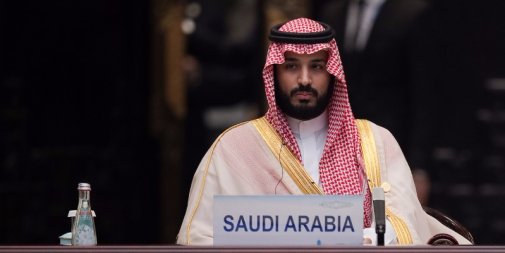$300-billion Saudi state sell-off moves at Snail’s Pace
When Prince Mohammed bin
Salman of Saudi Arabia announced his $300 billion privatisation plan there was
much excitement for what was then being termed the ‘sale of the century’. Now,
19 months down the line, very little seems to have actually happened.
Among the myriad of problems
that seem to be plaguing this transition are substantial bureaucracy, poor
legal structures and lacklustre investors. This has affected many of the
country’s sectors – most noticeably grains, the postal service and healthcare.
A Saudi banker explained
that the transformation is going to take much longer than anticipated due in
part to the constantly shifting priorities of the government. They are also
encountering problems on a lower level with institutions which have little by
way of book-keeping. They will need a full make over before they will be at an
adequate standard for privatisation.
This sell-off of Saudi
Arabia forms an important part of the Prince’s Vision 2030 plan. The
overarching purpose of this plan is to diversify the economy, which is
currently suffering from high unemployment. In this time of low oil prices, the
Prince is aiming to move away from energy exports and find new ways of bringing
revenue into the country.
However, professionals in
the banking and investment arenas as well as analysts are
concerned about the distinct absence of clear regulatory frameworks. Without
these it will be a challenge to assure potential shareholders of important
matters such as the level of control foreign companies could gain.
Overall the sell-off is
supposed to improve the state of state finances by putting much of the country
into private hands. The four areas that have been put as priorities for 2017
are: grain silos, sports, electricity generation and water provision.
However, would-be buyers of
the kingdom’s grain silos are being put off by the prospect of tedious
ownership rules and seemingly never-ending paperwork to complete the sales
process.
Raphaele Auberty, a risk
analyst at BMI Research for the Middle East and Africa stated: “Compared with
many of its neighbors, Saudi Arabia has only limited experience in terms of
privatizations, and still lacks an adequate regulatory framework.” This will
undoubtedly lengthen the process and place numerous hurdles in the way of
prospective buyers.
It was originally thought
that the bidding process for Saudi Arabia’s key sectors could start in 2018 but
it is now looking like 2019 or even 2020 could be more realistic start dates.
Further confusion was thrown
into the mix when a local media outlet released information that the government
was planning to privatize 27 airports by mid-2018. This has been rejected by
target analysts who have dismissed the idea as unrealistic. When questioned on
the topic the Chairman of Saudi Civil Aviation Holding Company explained that
the airports were to be corporatized or turned into private companies by the
date mentioned. The full process of privatization would come later down the
line.
He finished by saying: “Various
challenges have arisen and have been resolved. The deadline of mid-2018 is
reachable.”




Comments
Post a Comment